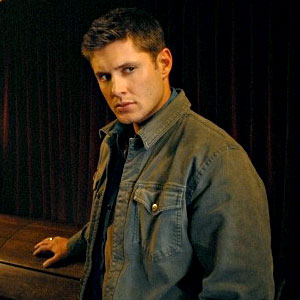 |
| Tiny elf, big shirt |
I have neglected this blog terribly again, and no excuse I
could give would sound believable to you or seem adequate to me. But this entry
has been percolating for a while, and when I caught myself composing sentences
for it in my head, I decided it was time to get it down on paper. Except, you
know, not really, because I’m typing it in Word right now.
So my writing process has kind of been hit or miss since I
went radio silent. I poked at my Snow White story (which will be referred to as
Rotten Apples from here on out, or
until someone comes up with a better title for me—but no one ever does so I’m
stuck with the slightly lame ones I come up with on my own). I went to my
annual writing conference in late June and hung out with some great kids and
taught a workshop on writing the opposite gender. I wrote a little while I was
there, and I learned some things from other workshops that would apply really
well to my characters and plot.
Then I came home. And I didn’t write.
After two weeks, I thought to myself, “Self, this is
ridiculous,” and gave myself a metaphorical kick in the pants. This is usually
more effective when someone else does it, but there isn’t always a pants-kicker
available right when I need them. So as I kicked myself in the pants, I told
myself I needed to set a goal. Any goal. Even a miniscule one. Just something
to get me back to writing every day, to actually making progress on a story
that seemed stalled out at about 8000 words. (For the uninitiated, that’s about
24 pages for the average writer. More like 26 or 28 for me, though, because my
work is always more dialogue-heavy.)
500 words seemed doable. 1000 was too scary, especially
after not having written anything of substance for a while. 1000 is too close
to NaNoWriMo’s 1667, and the idea of doing NaNoWriMo more than once a year is
terrifying. All right. 500 words a day. For a week. I made a cute little
notation on my to-do list, with boxes to check off by each day of the week.
Because that helps—I don’t know why, but crossing things off or checking boxes
is extremely gratifying, even if it’s something dumb I will do anyway, like
shower.
So I’ve been trying this for about two weeks.
Did you know that writing is hard? It really is sometimes. I
think sometimes people hear writers complain, and they’re just like, “Yeah,
whatever, you sit on your butt and dream stuff up all day.” But it’s a job like
anything else. Writing is also not as solitary as some would have you believe.
Maybe there are some writers who just go into their caves and huddle over their
laptops and work in total isolation, but their work would suffer for it because
there is a person I think every writer needs in his or her life.
The Voice of Reason.
Don’t confuse the Voice of Reason with a First Reader,
because they aren’t always the same. First Readers tend to be all glowing and
supportive and encouraging. Your Voice of Reason can be that too, but your
Voice of Reason is really the person who talks you out of doing stupid things. An
authorial conscience, if you will. But conscience is more about right and
wrong—a Voice of Reason is more “that’s a stupid idea.”
What I need in my Voice of Reason is a sounding board,
someone to talk me down from the cliff of doing something really stupid like
aging up my characters just because someone else suggested it. I tend to latch
on to any kind of logical argument. Because it’s logical, there must be some
validity in it. That’s how my brain works. So I need my Voice of Reason to tell
when something is a bad idea for my story. I don’t always see that. I see a
new, shiny, logical possibility.
My Voice of Reason is my friend Amy, dating all the way back
to Mr. Gordon’s 7th grade homeroom. When we first met, I was a tiny
elf who wore enormous t-shirts and said very little. Amy is my total opposite
in that respect—she’s a talker. But we’re very like-minded. I find myself drawn
quite often to people like that, people who think along similar lines but are
able to better articulate those thoughts. I tend to say something with a lot of
“I don’t know”s and “maybe”s, and then Amy will say it back to me in a way that
totally agrees with
what I just said but is stated much more clearly. It’s a
good back-and-forth.
Don’t get me wrong—we don’t agree on everything. Boy, don’t
we. Amy has a Ph.D. She’s co-authoring books and articles about theology. I’m a
college dropout with eight novels under my belt. But Amy loves story, and she
has always been supportive of my endeavors. She is my Voice of Reason, the
first person I come to when an absolutely crazy idea pops into my head and I’m
not sure whether it’s absolutely brilliant or just not right for my novel. When
someone else, another reader, perhaps, suggests an idea and I latch onto it
because their argument for it makes sense, I take it to Amy because I know Amy
is not so easily swayed by an argument just because it’s sound.
My writing process these days isn’t dependent on Amy, but
she’s a big part of it. She asks me if I’m writing. She shames me if I tell her
I haven’t written yet because I’ve been lost in the black hole that is gag reel
videos on YouTube. She reads pages that are in their absolute roughest form and
gives me honest reactions and helpful suggestions. When I have some kind of
thorny issue, like how to take a certain fairy tale element and create a
non-magical, science fiction equivalent, Amy talks things out with me until we
uncover a solution.
Amy has been an invaluable resource for me as I write Rotten Apples. Without her, I would have
one spectacularly bad kissing scene, a big hole where I should have a sci-fi
equivalent of the Evil Queen’s magic mirror, and countless unintentional Star Trek rip-offs. Without Amy, I might
still be stuck at one of those old problem spots, unable to think my way around
or let go of an unworkable idea just because it looks shiny. We talk almost
every day (on Facebook chat—go, technology!), and I know I can always go to her
for rational advice and an objective view. Every writer should have a Voice of
Reason. It’d be nice if every writer could have an Amy, but I know I lucked out
in that department, because there’s only one, and she is AWESOME.






